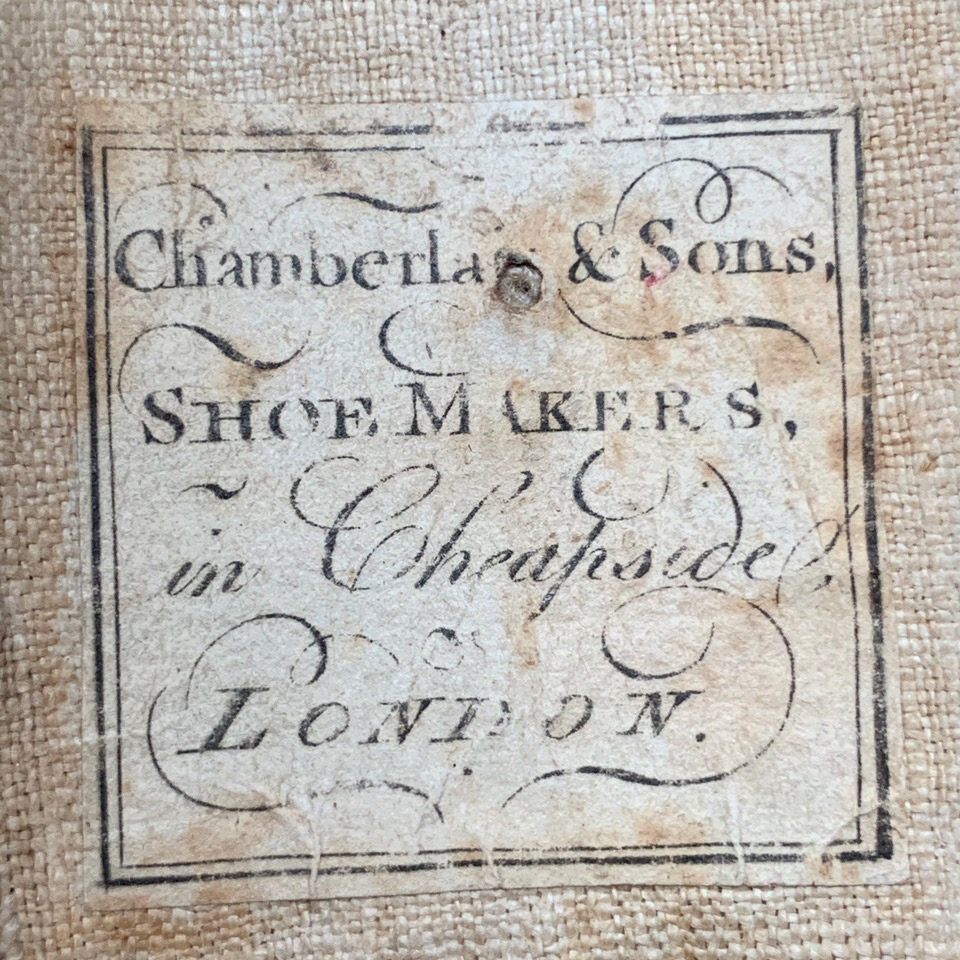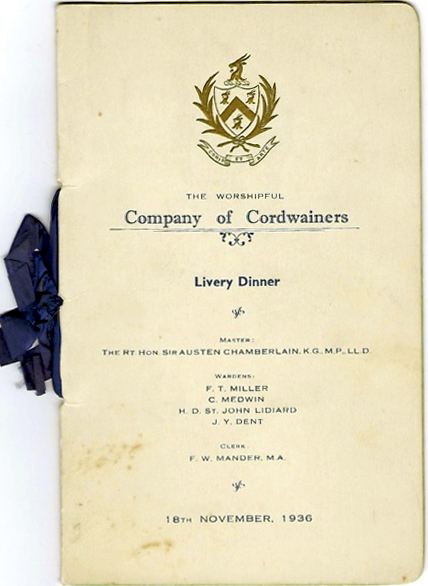In the world of Nobel laureates, October is awards month and Austen Chamberlain (1863-1937) is (so far) the only Cordwainer to have been so honoured.
Established in 1901, Nobel prizes reward distinguished scientists, writers and humanitarians from around the globe who have worked ‘for the greatest benefit of mankind’. They are widely regarded as the ultimate accolade – nothing really beats a Nobel prize in terms of sheer prestige.
Alfred Nobel did not endow a prize for shoe-making, but in 1925 a senior member of the Cordwainers Company was awarded the Nobel Peace Prize. Like most Cordwainers, Austen Chamberlain came from a shoemaking family, but by the early years of the 20th century members of his family had taken up other careers. Austen Chamberlain was one of Britain’s most distinguished politicians, yet his place in history is sometimes overshadowed by his father Joseph, the celebrated statesman, and his half-brother, Neville, prime minister 1937-40. The Chamberlains have been Cordwainers since the 18th century and Sir Austen’s direct descendants are active in the Company today.
Destined for greatness by his father, Austen became an MP in 1892 aged only 29, having completed his education in France and Germany, meeting senior French politicians and dining with Bismarck. He never forgot these important encounters, especially Bismarck’s forceful nationalism.

Churchill said of him, ‘he always plays the game and never wins it,’ but despite this scathing assessment, Austen enjoyed an outstanding political career, which reached its apogee with the negotiation and signing of the Locarno Pact in October 1925 when he was Foreign Secretary. An attempt to normalise relations between France and Germany after the carnage of the First World War, the ‘spirit of Locarno’, in which Germany, France and Britain agreed to settle their differences by arbitration, eased the political climate of Western Europe during the late 1920s.
The Pact gave hope to a generation bruised by the war and by the terms of the Versailles Peace Treaty. Foreshadowing the work of his younger brother Neville just over a decade later, Austen Chamberlain seemed to have ensured ‘peace in our time’. Chamberlain and his co-negotiators were awarded the Nobel Prize for Peace in 1925, King George V made him a Knight of the Garter and he received honorary degrees from both Oxford and Cambridge.
‘Warm-hearted, considerate and generous . . . incapable of a mean action and conscientious to a fault,’ according to his parliamentary private secretary Anthony Eden, Sir Austen continued to serve as a politician for the rest of his life. In 1936 he became Master of the Cordwainers and at his livery dinner on 18 November 1936 his guests of honour were the Ministers of Switzerland and the Netherlands.
Sir Austen died in March 1937 during his year as Master.
